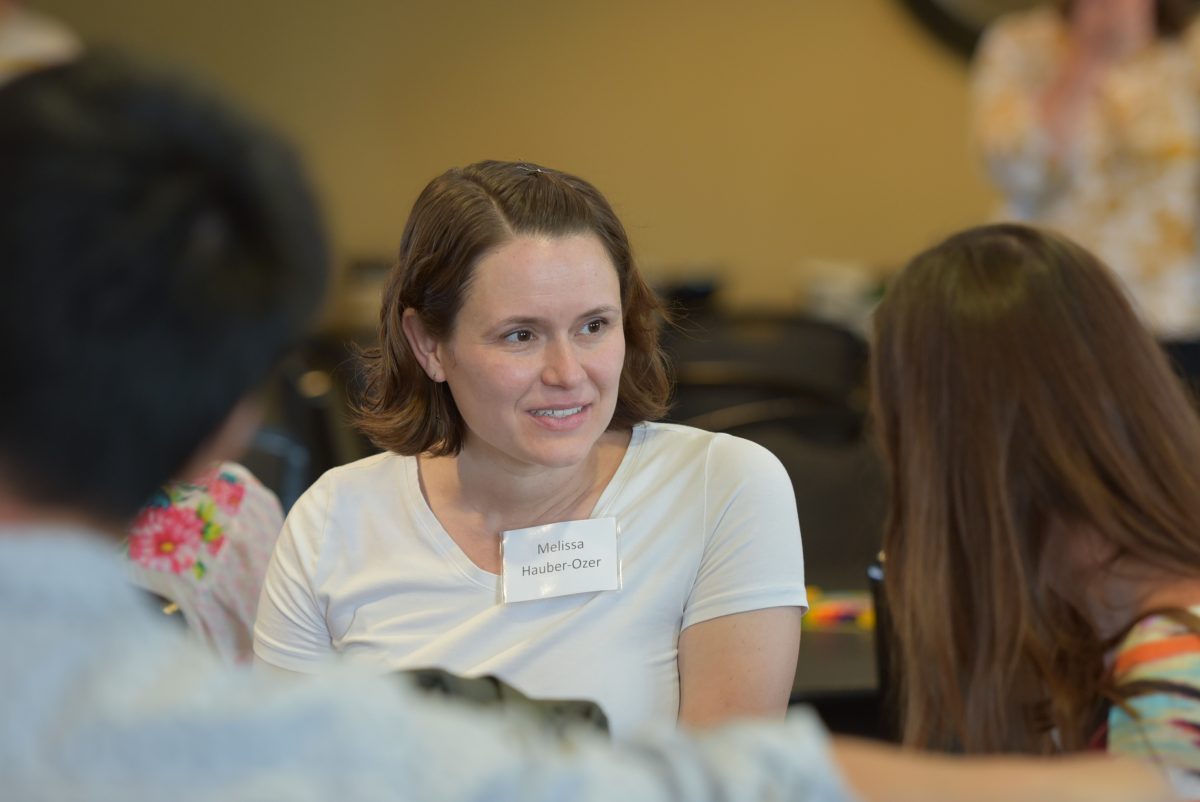Published on
Updated on

Melissa Hauber-Özer, an assistant professor in the University of Missouri’s College of Education and Human Development, grew up outside of Philadelphia in a working-class family. Homeschooled and passionate about learning, she studied German in college and later earned a master’s degree in education. Her teaching experience led her to pursue a Ph.D. in international education at George Mason University, where she discovered her love for qualitative research.
“I got interested in research because I realized that my students were dealing with a lot of difficulties outside of class related to their economic status, migration status and racial and ethnic identities,” Hauber-Özer said.
Hauber-Özer acknowledges the excitement and intimidation that comes with her as a second-year faculty member. Her intersecting identities as a woman, first-generation student, and being part of a bicultural, bilingual family contribute to her perspective on academia.
Taking a chance
Hauber-Özer’s involvement with the faculty group Connection began with some initial reservations.
“I actually didn’t get involved last year because I felt like it wasn’t really meant for me, and I didn’t know if I should take up space in that community,” Hauber-Özer said.
However, after attending webinars and observing a diverse group, she decided to join to get support navigating the tenure process and feeling more connected on campus.
“As a female first-generation student who didn’t grow up around the academia culture and as someone who has lived internationally and is from a bicultural bilingual family, I felt that it could help to get a little more support and get connected to people who have similar experiences and are not born and raised in the U.S.”
Exploring campus resources
When asked about her motivation to join Connection, Hauber-Özer emphasizes the need for support. Her role in her department, coupled with the interdisciplinary nature of her research, made it challenging to fit into traditional programs.
“Navigating tenure expectations and just feeling plugged into the campus community was a little harder for me,” Hauber said.
Connection meets monthly to hold discussions and build a sense of community among faculty members. Hauber-Özer has enjoyed mindfulness activities offered at meetings, the opportunity to meet with campus leaders, including University of Missouri President Mun Choi, and having an environment for open dialogue for faculty.
Hauber-Özer also appreciates Associate Provost Candace Kuby’s commitment to creating programs that support faculty from a variety of backgrounds.
“I appreciate having access to campus leaders and being able to ask questions,” Hauber-Özer said. “Not everyone gets that opportunity regularly.”
Meaningful change
Reflecting on her experience, Hauber-Özer emphasizes the importance of expanding the narrative of diversity, equity and inclusion to include various intersectional identities. She sees Connection as an opportunity to connect with faculty members with diverse experiences and contribute to fostering a more inclusive community.
“Connection enables me to get to know faculty of color and people who have other intersectional identities and to figure out ways that maybe I can help to highlight what they’re doing, like the research event that we’re planning for the spring,” Hauber-Özer said.
In April 2024, she, along with a small group of Connection members, will host a forum as part of Show Me Research Week. The event will showcase their fellow Connection members’ research presentations and give the opportunity for them to share their areas of expertise, like teaching best practices and advice on career pathways.
One of the research presentations being shared is from Hauber-Özer herself.
After meeting faculty member Sydney Yueh at new faculty orientation and reconnecting in an online Connections seminar, Hauber-Özer collaborated with her on a research project focused on international teaching assistants. Through this partnership, Hauber-Özer aims to use her skill set to highlight the work of others on campus and bring greater awareness to their endeavors.
“We’re collaborating on every aspect, from designing the study and obtaining IRB approval to conducting interviews and analyzing data. We plan to hold focus groups with international graduate students this semester to better understand their perspectives.”